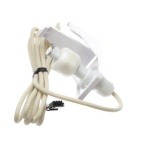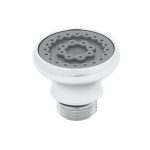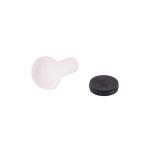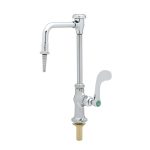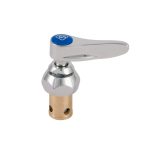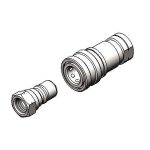Shop Our Everyday LOW PRICES on Top Quality Brands!
Restaurant Equipment
Commercial Quality Equipment for Restaurants and more.

Buy Commercial Quality Kitchen Equipment with Gerharz Restaurant Equipment
When it comes to kitchen equipment, making the right choice can be the difference between a smooth operation and endless challenges. Trust in Gerharz Equipment – where we prioritize your needs, offer unparalleled expertise and ensure that every piece of equipment we suggest is a step towards your business’s success. Don’t just buy equipment; invest in solutions with Gerharz Equipment.
At Gerharz, quality commercial equipment is essential for delivering outstanding results in the kitchen. Explore our range of premium restaurant equipment today and discover how the right equipment can transform your cooking experience, boost your kitchen’s performance, and help you serve up excellence every time.
We offer a variety of commercial equipment types including:

At Gerharz we provide personalized professional service.
Equipment Brands We Sell
- ACP, Inc
- Admiral Craft Equipment Corp.
- Advance Tabco Co.
- American Panel
- AmeriKooler, LLC
- Atosa
- Bakers Pride Oven, Inc.
- Bally
- Berner International
- Beverage Air - Victory Refrigeration
- BK Resources
- Blodgett
- Bluestar
- BUNN
- Carter-Hoffmann Corp.
- Champion Industries, Inc.
- Channel Manufacturing, Inc.
- Cleveland Range, Inc.
- CMA Dishmachines
- Continental Refrigerator
- Convotherm
- Dormont Manufacturing Co.
- Duke Manufacturing Co.
- Edgecraft
- Edlund Company, LLC
- Electrolux Professional Group
- Epicurean Commercial
- Everest Refrigeration
- Federal Industries
- Garland Commercial Ranges, Ltd.
- Glastender, Inc.
- Globe Food Equipment Company
- Grindmaster
- Hatco Corporation
- Hobart
- Hoshizaki
- ICE-O-Matic
- InSinkErator
- InterMetro Industries Corporation
- Jackson WWS, Inc.
- John Boos & Co.
- Krowne
- Lakeside Manufacturing, Inc.
- Lincoln Equipment
- Manitowoc Ice
- Middleby Marshall
- Migali
- Nemco Food Equipment
- Perlick
- Pitco Frialator
- Randell
- Robot Coupe USA, Inc.
- Scotsman
- Southbend
- Star/Lang/Toastmaster
- Structural Concepts
- The Delfield Company
- Traulsen
- True Manufacturing Co., Inc.
- Turbo Air
- Turbo Chef
- Vulcan FEG
- Winholt Equipment Group
Why Choose Gerharz Equipment?
-
Expertise and Experience:
With a 50-year track record, we have served countless restaurants and businesses, equipping them with the finest kitchen tools. Our legacy speaks volumes about our commitment to quality and customer satisfaction. -
Budget-Friendly Solutions:
We understand that every business has its bottom line to consider. We listen to your needs, assess your budget, and recommend the most cost-effective equipment that won’t compromise performance. -
Knowledgeable Team:
Our staff isn’t just well-versed in sales. They have first-hand experience of the kitchen world. With insights into what makes a kitchen tick, they can guide you toward equipment that will elevate your team’s efficiency and success. -
Save Time with Confidence:
In the fast-paced world of culinary arts, time is of the essence. Don’t waste hours, or even days, scouring for the right tools. Leave it to us. With our vast inventory and industry know-how, we'll swiftly find what you’re looking for.
Visit us at our local store in Syracuse for immediate pick-ups:
Address:
220 Teall Avenue, Syracuse
Our dedicated team is ready to assist you during our convenient store hours.
Store Hours:
Monday-Friday
8:30 am – 5:00 pm
Need Parts? Shop Our Equipment Parts.
Shop our selection of commercial cookware products, where we stand behind what we sell.
FAQ
Frequently Ask Questions
We understand that navigating restaurant equipment can raise many questions. Here are common frequently asked questions (FAQs) we are asked at Gerharz Equipment.
Check with a licensed plumber or contractor to determine gas type and gas fitting sizes.
Check voltage (110V or 220V), phase (single vs. three). Always coordinate with a licensed electrician or contractor if unsure.
If your equipment produces grease, smoke or heat (like fryers or ranges), a TYPE I Hood is required, along with a fire suppression system.
TYPE II Hoods are designed for heat, steam and moisture commonly used over dishwashers and do not require fire suppression.
Typically, your county Health Department is the best source for checking local food service regulations.
County Code Enforcement is the best source for building code compliance, including gas, electrical and ventilation requirements.
NSF (National Sanitation Foundation) develops the standards and certifies food service equipment to ensure it meets health and safety requirements. Their certification is stamped or engraved on compliant equipment.
Gas hoses are determined by gas type and BTU rating. It is best to consult with a licensed plumber/ equipment installer or call our team of experts at 1 (800) 244-6848
Gas equipment typically requires a Masters Plumber License or Gas Service Technician License.
Electrical equipment requires a licensed electrician or contractor. It is best to check your local codes for requirements specific to your location.
Gas equipment typically requires a Masters Plumber License or Gas Service Technician License.
Electrical equipment requires a licensed electrician or contractor. It is best to check your local codes for requirements specific to your location.
Measure your kitchen space, review your menu needs and anticipated volume, ensure you leave room for workflow, ventilation and code compliance and contact our team of experts at 1 (800) 244-6848 and a Salesperson can work with you in our Design Department to layout your space.
Measure your kitchen space, review your menu needs and anticipated volume, ensure you leave room for workflow, ventilation and code compliance and contact our team of experts at 1 (800) 244-6848 and a Salesperson can work with you in our Design Department to layout your space.
You Need a Liftgate If:
- You don’t have a loading dock or forklift
Most commercial kitchens, storefronts, or residential addresses that don’t have dock-height receiving areas will require a liftgate. - The delivery is being made to ground level
Liftgates are needed to safely lower heavy equipment (like refrigerators or fryers) from the truck to the ground. - You’re receiving heavy or bulky items
If the shipment is over 100 lbs. and cannot be hand-unloaded, a liftgate is highly recommended or required.
You Probably Don’t Need a Liftgate If:
- You have a dock-height loading bay or forklift.
- You’re shipping to a warehouse, distributor, or large facility that handles freight regularly.
- You’ve arranged inside delivery or white-glove service (which may already include liftgate service or alternatives).
Important Notes:
- Liftgate service typically adds a fee to LTL (less-than-truckload) freight.
- Always verify delivery capabilities ahead of time to avoid redelivery charges or delays.
Consider your kitchen layout, menu needs, budget, available utility connections (gas, electric, water), space requirements, and whether you're purchasing new or used equipment. Always prioritize quality and long-term durability.
Absolutely. Our knowledgeable staff has real industry experience and can help you select equipment based on your menu, volume, and kitchen layout. Call our team of experts at 1 (800) 244-6848.
Regular cleaning and preventative maintenance are key. Ask about our maintenance tips, user manuals, and recommended service schedules for your equipment. Call our team of experts at 1 (800) 244-6848.
Yes, we stock replacement parts, accessories, and add-ons for many major brands. If we don’t have it, we can likely order it for you. Call our team of experts at 1 (800) 244-6848.
Search our parts online
All equipment is covered by the manufacturer’s original factory warranty. Warranty terms vary by brand and product type and typically cover parts and/or labor for a limited period. Please refer to the manufacturer’s documentation for full warranty details.
Important Notes:
- Warranty coverage applies only to products used under normal commercial conditions.
- Improper installation, misuse, or lack of regular maintenance may void warranty coverage.
- The customer is responsible for registering equipment (if required) and contacting the manufacturer directly for warranty claims.
- Extended warranty options may be available upon request.
Residential Address (Even If You Run a Business from Home):
Freight carriers consider a location residential if it is:
- Zoned as residential (based on local property records)
- Located in a residential neighborhood
- A home, apartment, condo, or private property—even with a business name
- Lacking a loading dock or forklift
- Not open to the public during standard business hours
Important Note:
Running a business out of your home does not make the address commercial. If it's a house, it's residential for shipping purposes.
You Are Likely to have a Limited Access Location If:
- You don’t have regular receiving hours (e.g., 9–5 Monday–Friday)
- Appointments or security clearance are required to enter
- There is no loading dock, forklift, or liftgate available
- Delivery involves extra effort, such as:
- Narrow streets
- Gated entry
- Residential neighborhoods
- Rural or hard-to-reach locations
- Long distance from the curb to entrance
Examples of Limited Access Locations:
- Residential homes (even if you run a business there)
- Schools and universities
- Churches and places of worship
- Military bases or government facilities
- Hospitals and medical buildings
- Construction sites
- Storage units or mini warehouses
- Farms or agricultural sites
- Prisons or correctional facilities
You Are Not Limited Access If:
- You are a commercial business in a business district or industrial zone
- You have a receiving dock, forklift, or unloading staff
- The location is open during regular business hours with no special delivery restrictions
You Need a Liftgate If:
- You don't have a loading dock or forklift
- Liftgates lower the shipment from the truck to ground level.
- Essential if you can’t unload heavy equipment by hand.
- Your delivery is to a residential or limited-access location
- Carriers assume liftgate service is needed unless you specify otherwise.
- You’re receiving heavy or large items
- Equipment over 100 lbs. or bulky (like refrigerators or fryers) typically requires a liftgate to unload safely.
- You don’t have staff or tools to unload the freight
- If your delivery team isn’t equipped to receive freight, you’ll need a liftgate.
You Likely Don’t Need a Liftgate If:
- You have a loading dock at the delivery location.
- You own or have access to a forklift or pallet jack.
- You're receiving delivery to a commercial warehouse or distributor prepared for freight.
You’ve arranged inside or white glove delivery (which may include other unloading methods).
A liftgate is a mechanical platform at the back of a freight truck that raises and lowers heavy shipments between the truck and the ground.
- If you don’t request liftgate service when it’s needed, the carrier may:
- Delay the delivery
- Charge an additional fee for redelivery
- Require you to manually unload (which can be unsafe)
Quick Rule of Thumb:
No dock + no forklift = You need a liftgate.
Great question! A call-ahead notification (also known as an appointment delivery or delivery notification) ensures the freight carrier contacts you before delivery to schedule a time or confirm someone will be available.
Here’s how to know if you require one:
You Likely Need a Call-Ahead Notification If:
- You don’t have a full-time receiving department
- Small businesses, residential deliveries, or locations without staff always on-site should request this.
- You need to make special arrangements to receive delivery
- Example: You must unlock a gate, move other vehicles, or coordinate staff.
- You have limited delivery hours
- If you're not open 9–5, Monday–Friday, a call-ahead ensures you don’t miss the delivery.
- Your location is residential or limited access
- Most carriers will assume a call-ahead is needed for these locations and may charge a fee.
You May Not Need a Call-Ahead If:
- You have a commercial facility with standard business hours and a receiving area
- You’re staffed and equipped to receive freight at any time during normal delivery hours
You’ve already scheduled a specific delivery window or time with the carrier
- You don’t have a full-time receiving department
- The freight carrier calls (usually 24 hours before) to set a delivery window, typically 2–4 hours.
- You confirm someone will be available to receive the shipment.
Quick Rule of Thumb:
If you’re not open all day, every weekday, or don’t have a receiving dock — request a call-ahead.
Ordering heavy or oversized equipment online is a little different than standard package delivery. Here's what you need to know to ensure a smooth experience:
Freight Delivery Overview
- Large items (like refrigerators, ovens, and freezers) ship via LTL (Less-Than-Truckload) freight.
- Delivery is curbside only unless other arrangements are made.
- You will receive a tracking number and may be contacted by the carrier to schedule delivery.
Delivery Location Requirements
- Deliveries must be made to a commercial address with a loading dock or forklift or require a liftgate service for ground-level unloading.
- Residential addresses or limited access locations (schools, churches, farms, etc.) may incur additional fees.
- You must be present at the delivery time to inspect and sign for the shipment.
Call-Ahead Notification
- Many freight carriers offer or require a call-ahead to schedule delivery.
- Make sure your contact phone number is correct when placing your order.
Liftgate Service
- If you do not have a loading dock or forklift, you will need liftgate service to lower the item from the truck to ground level.
- Please select this option at checkout or request it with our team to avoid delays or re-delivery charges.
Unloading & Inspection
- Inspect your shipment upon arrival before signing the delivery receipt.
- Please ensure you have the appropriate manpower or equipment on-site at the time of delivery, as freight carriers are not responsible for unloading your order.
- Check for visible damage, missing items, or signs of mishandling.
- If anything is wrong, note it in writing on the delivery receipt and take photos.
- Damage not noted at delivery may void your claim eligibility.
Delivery Timeframes
- Most freight shipments arrive within 3–10 business days depending on location and carrier.
- Rural areas or hard-to-access locations may take longer.
- Delivery does not include installation or inside placement unless specifically arranged.
Yes, we do! Give us a call at 1 (800) 244-6848, and one of our Sales Representatives will be happy to connect you with our trusted and long-standing financing partner
You or someone at your location must:
- Be present at delivery
- Have manpower ready as freight carriers are not responsible for unloading your order.
- Inspect the shipment for visible damage before signing
- Note any damage on the delivery receipt and take photos
Failure to note damage at the time of delivery may affect your ability to file a claim.







